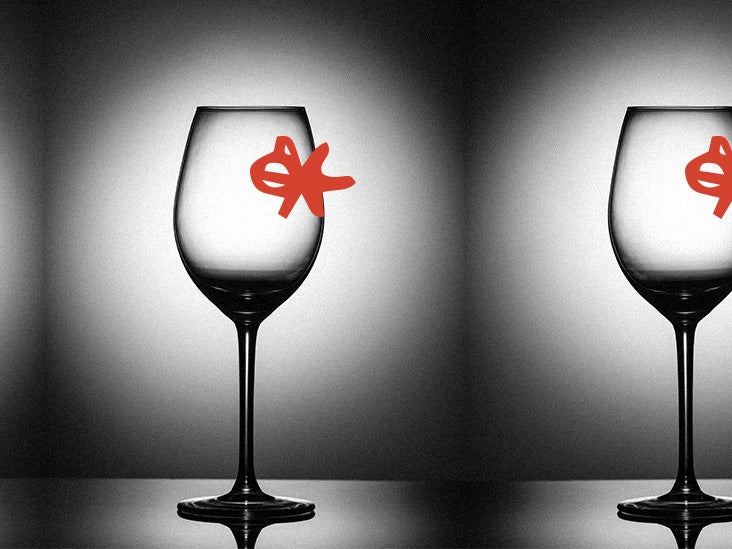Blood
Does alcohol thin your blood? Research and more
Research suggests drinking alcohol may thin the blood by affecting platelets, which are the parts of blood that initiate coagulation, or clotting. However, alcohol may also increase the risk of blood clots.
This article explores how alcohol affects the ability of the blood to clot. It also discusses alcohol use disorder. Finally, it answers some common questions about alcohol and blood thinning.
A 2017 review explains that alcohol consumption has complex and varying effects on platelets, which are small blood cells that initiate the coagulation cascade, causing blood to clot.
Blood clotting is essential to prevent blood loss when someone is injured or wounded. However, it can also have adverse effects. For example, if a blood clot forms and limits the flow of blood in the arteries, doctors call this thrombosis.
Some people take medications to prevent the blood from clotting or slow the clotting process. They may refer to them as blood thinners, anticoagulants, or antiplatelet drugs. A doctor may prescribe these medications to reduce a person’s risk of heart attack and stroke.
Learn more about anticoagulant medications.
The above review noted that low to moderate alcohol consumption can decrease platelet activation and aggregation, meaning it may reduce blood clotting in a similar way to blood thinning medications.
However, people should not consume alcohol instead of taking medications as a healthcare professional has prescribed. Additionally, a person should discuss whether they are able to consume alcohol while taking blood thinners, as alcohol may interact with some medications and lead to side effects.
According to the above review, daily drinking of significant amounts of alcohol can increase platelet aggregation and reactivity, meaning it may increase the risk of blood clots.
The review authors highlighted that previous research has suggested drinking significant amounts of alcohol every day has links to a higher risk of developing high blood pressure. They also discussed studies that indicated higher levels of alcohol consumption have associations with an increased risk of stroke, atrial fibrillation, and heart failure.
Additionally, the authors discussed older studies that suggested binge drinking can cause temporary increases in blood pressure. They also highlighted that long-term heavy drinking and binge drinking may increase someone’s risk of various cardiovascular conditions.
Experts define binge drinking as consuming in excess of four drinks for females or five drinks for males within around 2 hours.
The American Heart Association (AHA) advises people to limit their alcohol consumption to no more than two drinks daily for males and one drink per day for females. The AHA states that, generally, one drink equals:
- a 12 ounce (oz) beer with 5% alcohol
- a 5 oz glass of wine
- 8 oz malt liquor of 7% alcohol
- 1.5 oz of 80-proof liquor
Below are answers to common questions about whether alcohol may thin the blood.
Does alcohol thin the blood before surgery?
Because research suggests that alcohol may thin the blood, people need to avoid consuming any before undergoing surgery.
Additionally, the NIAA advises that studies have indicated that heavy alcohol use and AUD have links to increased surgical complications. It also suggests long-term alcohol use may increase the dose requirements for general anesthesia.
Can people drink alcohol while taking blood thinners?
Blood thinners may interact with alcohol as well as certain other medications, foods, and dietary supplements. For example, the NIAA advises that drinking alcohol while taking warfarin, which is a blood thinner, can have adverse effects.
Therefore, a person should speak with a healthcare professional about whether it is safe for them to drink alcohol while taking medications.
Can someone drink alcohol instead of taking a blood thinner?
People should not use alcohol in place of blood thinners. While alcohol may have blood thinning effects, it may also increase the risk of cardiovascular conditions and blood clots.
A person needs to speak with a doctor about taking blood thinners safely.
Research suggests that in low to moderate amounts, alcohol may have blood-thinning effects due to it reducing platelet function. However, higher amounts of alcohol consumption may have the opposite effect and increase the risk of blood clotting.
Therefore, a person should not drink alcohol instead of taking blood thinning medications as a doctor has prescribed.
People should speak with a healthcare professional about consuming alcohol and taking blood-thinning medications safely. A person should also speak with a doctor or access online support if they have concerns that they or someone they know may have AUD.

